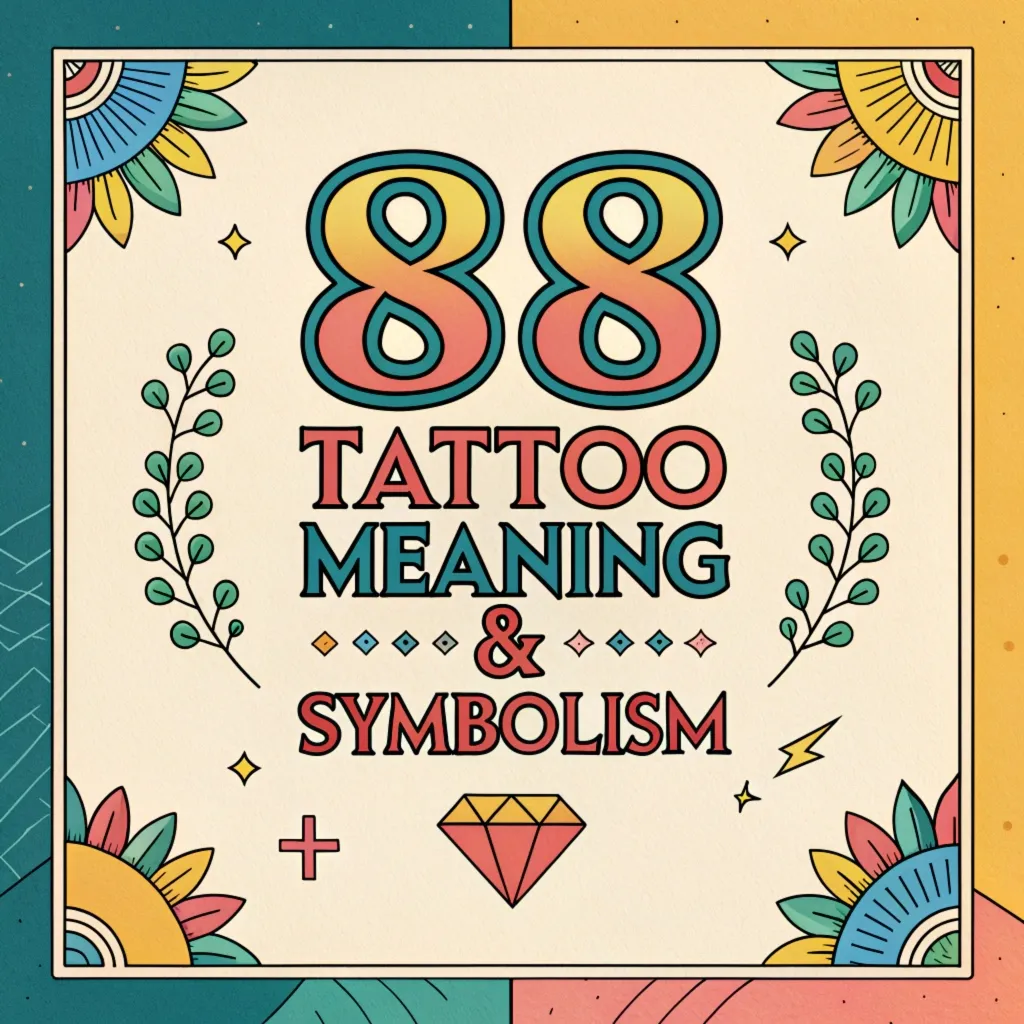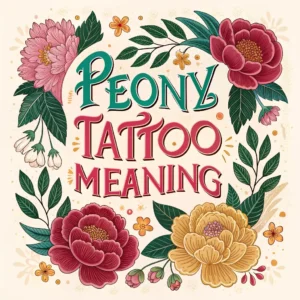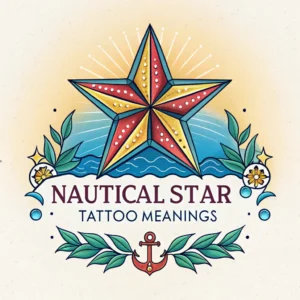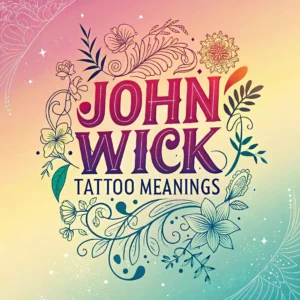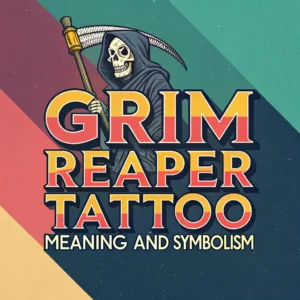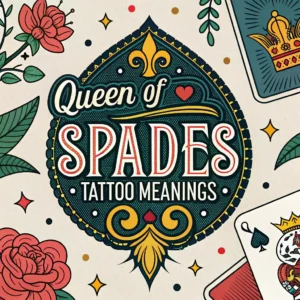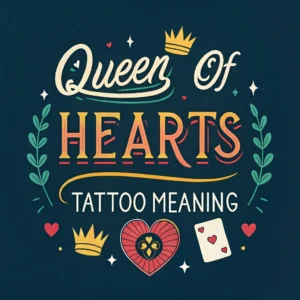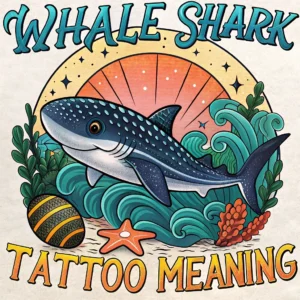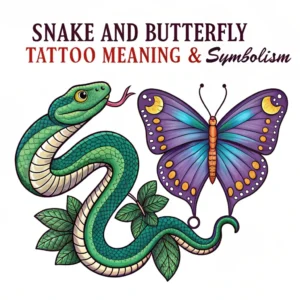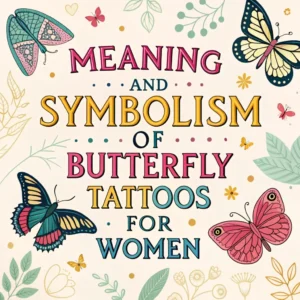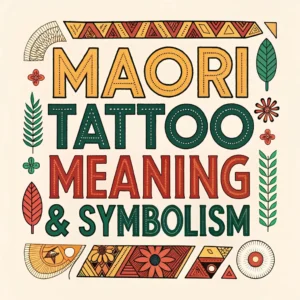Have you ever seen someone with the number 88 on their skin? This is called a tattoo. The number 88 might look simple, but it has many different meanings. Some of these meanings are good, while others are not so nice.
In this post, we’ll learn about why people get 88 tattoos and what this number can mean in different parts of the world. We’ll also find out why it’s important to be careful about using numbers as symbols.
Whether you’re curious about tattoos or just like learning new things, this story about the number 88 will teach you a lot about how people use symbols to share ideas.
Key Takeaways
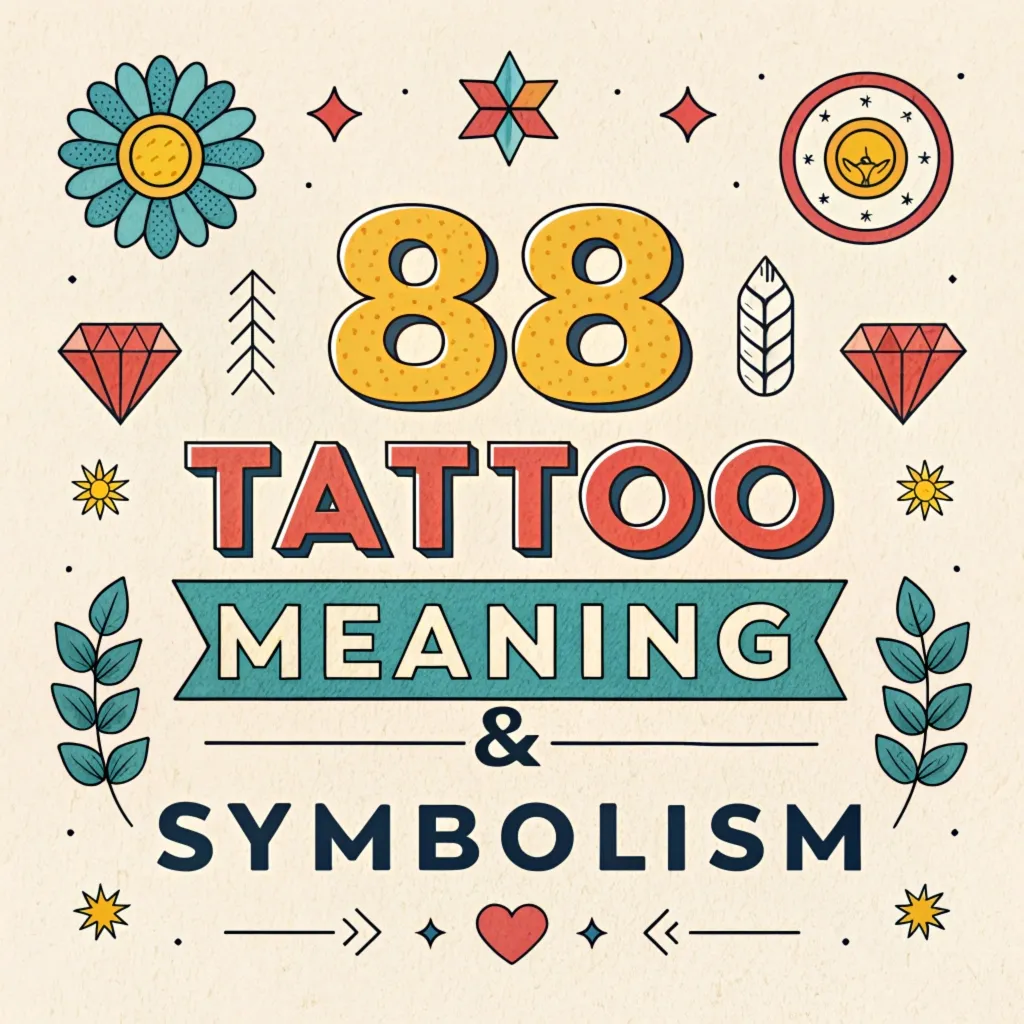
- White Supremacist Code: 88 is often used as a numerical code for “Heil Hitler” in neo-Nazi and white supremacist circles.
- Chinese Lucky Number: In Chinese culture, 88 symbolizes good fortune and prosperity.
- Amateur Radio Shorthand: Ham radio operators use 88 to mean “hugs and kisses.”
- Multiple Interpretations: The meaning of an 88 tattoo depends on the wearer’s intent and cultural background.
- Controversial Symbol: Due to its neo-Nazi associations, 88 tattoos can be viewed as hate symbols in many contexts.
- Cultural Sensitivity: Understanding the various meanings of 88 is crucial for avoiding misinterpretation.
- Legal Implications: Some countries have banned the use of 88 in certain contexts due to its neo-Nazi connotations.
- Personal Significance: Some individuals may choose 88 tattoos for personal reasons unrelated to extremist ideologies.
- Sports Connection: The number 88 has been used by NASCAR drivers, leading to merchandise featuring this number.
- Contextual Understanding: Interpreting an 88 tattoo requires considering the wearer’s background and other visual elements.
White Supremacist Symbolism
In white supremacist circles, the number 88 serves as a numerical code for “Heil Hitler.” This association stems from the fact that H is the eighth letter of the alphabet, making 88 represent HH.
White supremacist groups often use this code in various forms, including tattoos, graphics, group names, and online communications.
The number 88 has become a secret way for some bad people to talk to each other. They use it because H is the eighth letter in the ABC’s. So, 88 means HH, which stands for “Heil Hitler.” This is not a nice thing to say.
Some people put this number on their skin as a tattoo or use it in pictures and group names. They also use it when talking online. It’s important to know that this number can mean something very mean and hurtful to many people.
Combination with Other Hate Symbols
The number 88 is frequently combined with other white supremacist symbols. A common pairing is 14/88, where 14 refers to the “Fourteen Words” slogan coined by white supremacist David Lane. This combination appears in various formats, such as 1488, 14-88, or 8814.
Sometimes, people who believe in treating others unfairly use 88 with other mean symbols. They often put it next to the number 14. This makes 14/88. The 14 stands for some words that these people think are important.
You might see this as 1488, 14-88, or 8814. It’s sad that some people use numbers to be unkind to others. It’s always best to be nice to everyone, no matter what they look like or where they come from.
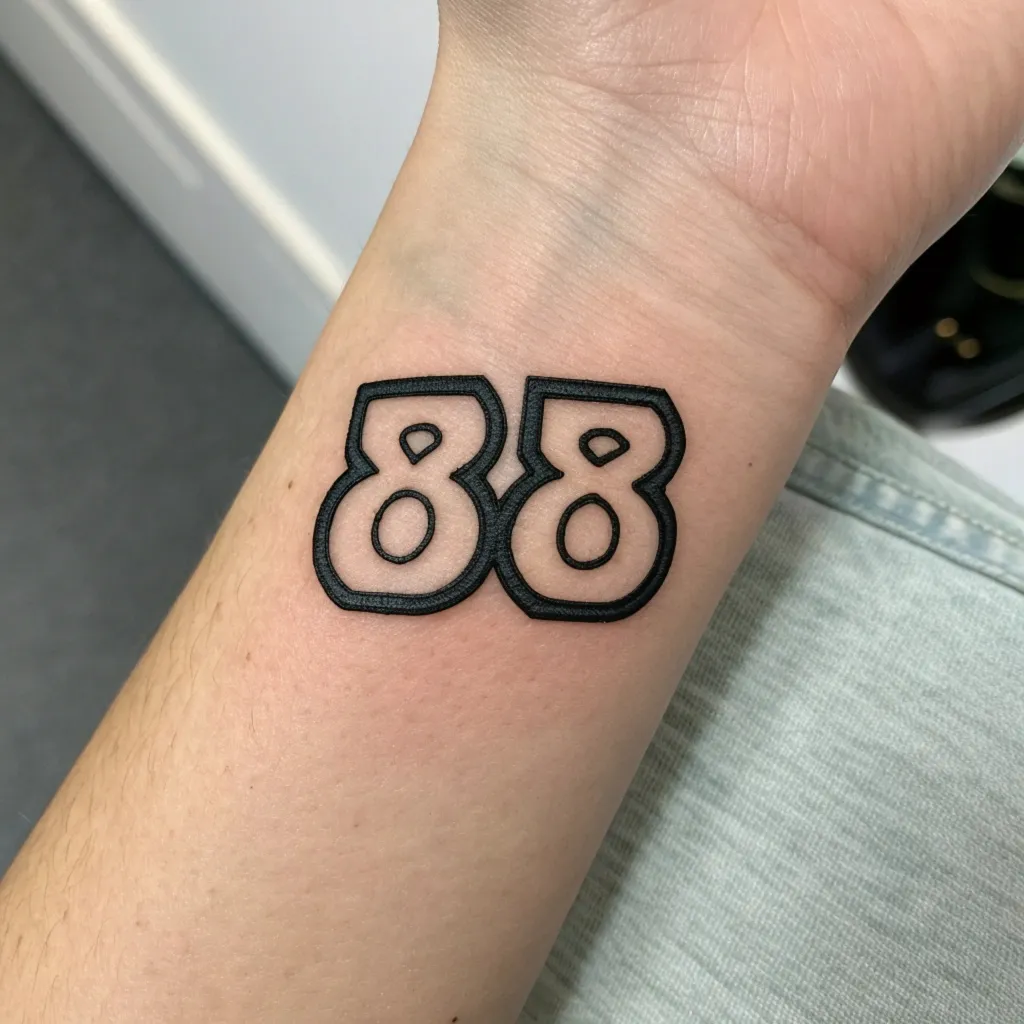
Cultural Significance in China
In stark contrast to its use in white supremacist ideology, the number 88 holds a positive meaning in Chinese culture.
It symbolizes good fortune and prosperity. This interpretation stems from the similarity in pronunciation between the word for “eight” and the word for “wealth” or “fortune” in Chinese languages.
In China, people think 88 is a very lucky number. This is because in Chinese, the word for “eight” sounds a lot like the word for “wealth” or “good luck.” So, many Chinese people like to use 88 in happy ways.
They might want a phone number with 88 in it or choose to do important things on August 8th (8/8). This shows how the same number can mean very different things to different people around the world.
It’s a good reminder to always learn about other cultures before we judge what we see.
Use in Amateur Radio
Ham radio operators use 88 as a shorthand for “hugs and kisses” when ending communications. This usage is entirely separate from the number’s other connotations and represents a friendly, informal sign-off in the amateur radio community.
People who talk on special radios called ham radios use 88 in a nice way. For them, it means “hugs and kisses.” This is very different from how some other groups use this number.
When ham radio friends finish talking, they might say “88” to mean goodbye in a friendly way. It’s like sending a hug through the radio.
This shows that numbers can have many meanings. It’s important to know who is using a number and why before we decide what it means.
Sports and Entertainment Connections
Some NASCAR drivers have used the number 88, leading to the production of merchandise featuring this number. However, it’s crucial to note that this usage is unrelated to any extremist ideologies.
In car racing, some drivers pick 88 as their car number. This is just because they like the number or think it’s lucky. It has nothing to do with any mean ideas. Fans can buy things like shirts or hats with 88 on them to support their favorite driver.
This shows that sometimes a number is just a number. It’s important to remember that not everyone who uses 88 is trying to be unkind. We should always think carefully before we judge someone for the numbers they use.
Legal and Social Implications
Due to its strong association with neo-Nazi ideology, the use of 88 has faced legal restrictions in some countries. For example, Austria has banned 88 on license plates, and the Italian Football Federation has prohibited its use in Italian soccer.
Some countries have made rules about using the number 88. This is because they don’t want people to use it in a mean way. In Austria, you can’t put 88 on your car’s license plate. In Italy, soccer players can’t have 88 on their shirts.
These rules help stop people from using the number to hurt others. It shows that sometimes, even numbers can be so important that governments make laws about them. This helps us understand that words and symbols can be very powerful.
Interpreting 88 Tattoos
When encountering an 88 tattoo, it’s essential to consider the context and the individual’s background. While it often represents white supremacist beliefs, it can also have personal or cultural significance unrelated to extremist ideologies.
When you see someone with an 88 tattoo, it’s important not to jump to conclusions. Sometimes, people get this tattoo because it means something special to them that has nothing to do with being mean to others.
It could be their lucky number, their birth year, or something else that’s important to them. However, because 88 can also mean something not nice, it’s good to be careful. The best thing to do is to remember that everyone is different and has their own reasons for the things they do.
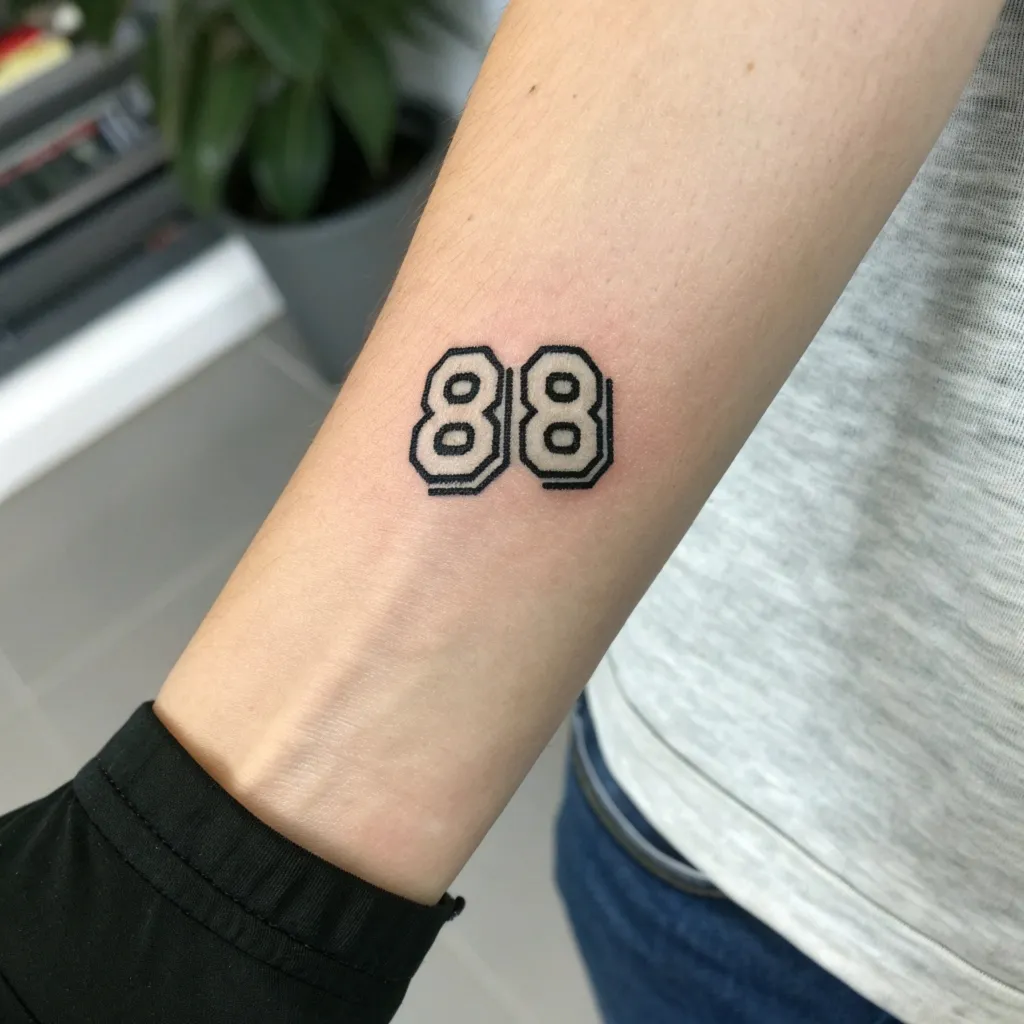
Controversy and Public Perception
The use of 88 in tattoos and other visible forms has sparked controversy due to its neo-Nazi associations. Public figures and media personalities have faced scrutiny for displaying this number, even when claiming non-extremist intentions.
When famous people use the number 88, it can cause a lot of trouble. Even if they say they didn’t mean anything bad by it, many people get upset. This is because the number is often used by groups that have very mean ideas.
It shows how careful we need to be with symbols and numbers. What might seem okay to one person can be very hurtful to others. This teaches us that it’s important to think about how our actions might affect other people, even if we don’t mean any harm.
Alternative Meanings and Personal Significance
Some individuals may choose an 88 tattoo for reasons unrelated to hate symbols. These could include birth years, lucky numbers, or other personal meanings. However, due to the number’s controversial nature, wearers should be aware of potential misinterpretations.
People might get an 88 tattoo for many different reasons that are not mean at all. Maybe they were born in 1988, or maybe 8 is their lucky number so they like 88 even more.
Some people might pick it because something good happened to them on August 8th (8/8). These are all okay reasons to like a number.
But because 88 can also mean something not nice, people with this tattoo should know that others might not understand why they have it. It’s always good to be ready to explain your choices kindly if someone asks.
Impact on Popular Culture
The controversial nature of 88 has influenced its portrayal in media and popular culture. Films, books, and news reports often reference the number’s connection to white supremacist ideology, further cementing its association in public consciousness.
Movies, books, and news stories sometimes talk about how 88 is used by people with mean ideas. This makes more people know about what the number can mean. Because of this, when people see 88, they might think of these bad things they’ve heard about.
It’s like how a song you hear a lot gets stuck in your head. The more we hear about 88 being used in a bad way, the more people remember it that way. This shows how powerful stories can be in shaping what we think about things, even simple numbers.
Efforts to Reclaim or Redefine the Symbol
Some groups and individuals have attempted to reclaim or redefine the meaning of 88, distancing it from its neo-Nazi associations. However, these efforts face significant challenges due to the symbol’s deeply entrenched connections to extremist ideologies.
Some people are trying to make 88 mean good things again. They want people to forget about the bad ways it has been used. This is very hard to do because many people already know about the mean meanings.
It’s like trying to erase a mark that has been there for a long time. Even though it’s difficult, these people keep trying. They hope that one day, 88 can be just a normal number again. This shows that people can work to change things for the better, even when it’s not easy.
Global Variations in Interpretation
The meaning and significance of 88 can vary greatly across different countries and cultures. While it’s predominantly associated with neo-Nazism in Western contexts, its interpretation may differ significantly in Asian countries where it’s seen as a lucky number.
Around the world, 88 means different things to different people. In some countries, especially in the West, people might think of bad things when they see 88. But in many Asian countries, like China, 88 is a very lucky number.
People there might be happy to see 88 because they think it brings good fortune. This shows how the same number can make people feel very differently depending on where they are from.
It’s a good reminder that we should always try to understand other cultures and not assume that everyone sees things the same way we do.
FAQs
What does an 88 tattoo typically symbolize?
An 88 tattoo often symbolizes support for neo-Nazi ideology, representing the phrase “Heil Hitler.” However, its meaning can vary based on the wearer’s intent and cultural background.
Is the number 88 always associated with white supremacy?
No, 88 has multiple meanings. While it’s a known white supremacist symbol, it’s also considered lucky in Chinese culture and used as a friendly sign-off in amateur radio.
Are there legal restrictions on using the number 88?
Some countries have banned the use of 88 in certain contexts, such as on license plates or in sports, due to its neo-Nazi associations.
Can an 88 tattoo have a non-extremist meaning?
Yes, an 88 tattoo can have personal significance unrelated to extremist ideologies, such as representing a birth year or lucky number.
How do different cultures interpret the number 88?
Interpretations vary widely. In Western contexts, it’s often associated with neo-Nazism, while in Chinese culture, it symbolizes good fortune and prosperity.

Hello, I’m Zephyra, your guide at SpiritualityEssence.com. I’m passionate about uncovering life’s mysteries and sharing transformative insights. Let’s explore mindfulness, ancient rituals, and the path to a more awakened life together. Join me on this spiritual journey!

